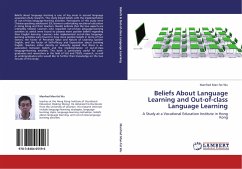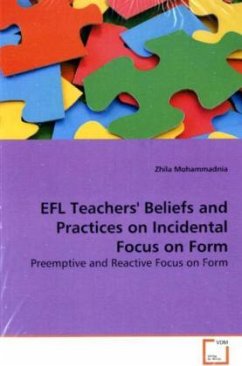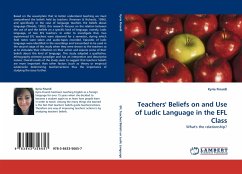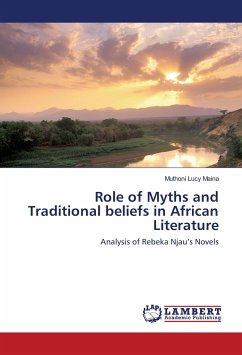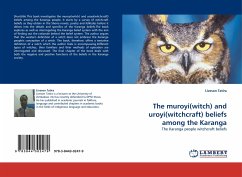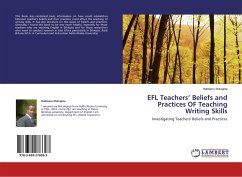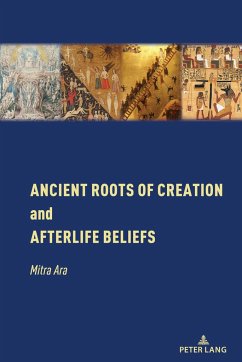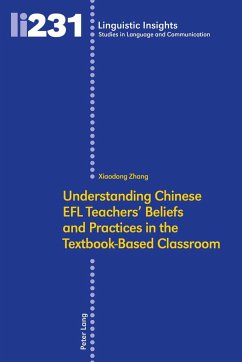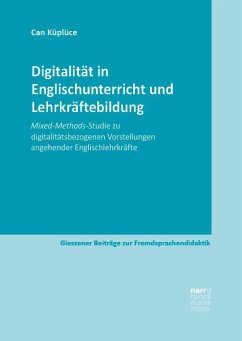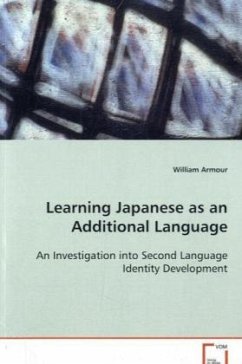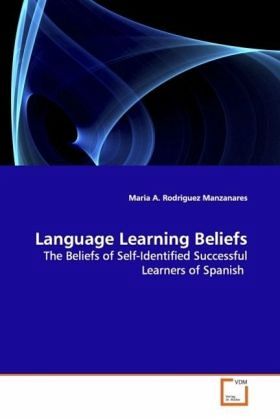
Language Learning Beliefs
The Beliefs of Self-Identified Successful Learners of Spanish
Versandkostenfrei!
Versandfertig in 6-10 Tagen
45,99 €
inkl. MwSt.

PAYBACK Punkte
23 °P sammeln!
In Language Learning Beliefs: The Beliefs of Self-Identified Successful Learners of Spanish, Maria A. Rodriguez reports on a study conducted to gain insight into the beliefs of self-identified successful learners of Spanish as a foreign language at a Canadian university. Data collection for the study relied on the Beliefs About Language Learning Inventory in combination with an online discussion and individual online interviews. Maria A. Rodriguez presents descriptive profiles of individual participants beliefs as well as cross-case analysis and comparisons with the literature which highlight ...
In Language Learning Beliefs: The Beliefs of Self-
Identified Successful Learners of Spanish, Maria A.
Rodriguez reports on a study conducted to gain
insight into the beliefs of self-identified
successful learners of Spanish as a foreign language
at a Canadian university. Data collection for the
study relied on the Beliefs About Language Learning
Inventory in combination with an online discussion
and individual online interviews. Maria A. Rodriguez
presents descriptive profiles of individual
participants beliefs as well as cross-case analysis
and comparisons with the literature which highlight
the importance of learners beliefs related to
informal opportunities for learning in
authentic contexts, such as through interactions
with native speakers and the target culture.
Identified Successful Learners of Spanish, Maria A.
Rodriguez reports on a study conducted to gain
insight into the beliefs of self-identified
successful learners of Spanish as a foreign language
at a Canadian university. Data collection for the
study relied on the Beliefs About Language Learning
Inventory in combination with an online discussion
and individual online interviews. Maria A. Rodriguez
presents descriptive profiles of individual
participants beliefs as well as cross-case analysis
and comparisons with the literature which highlight
the importance of learners beliefs related to
informal opportunities for learning in
authentic contexts, such as through interactions
with native speakers and the target culture.



